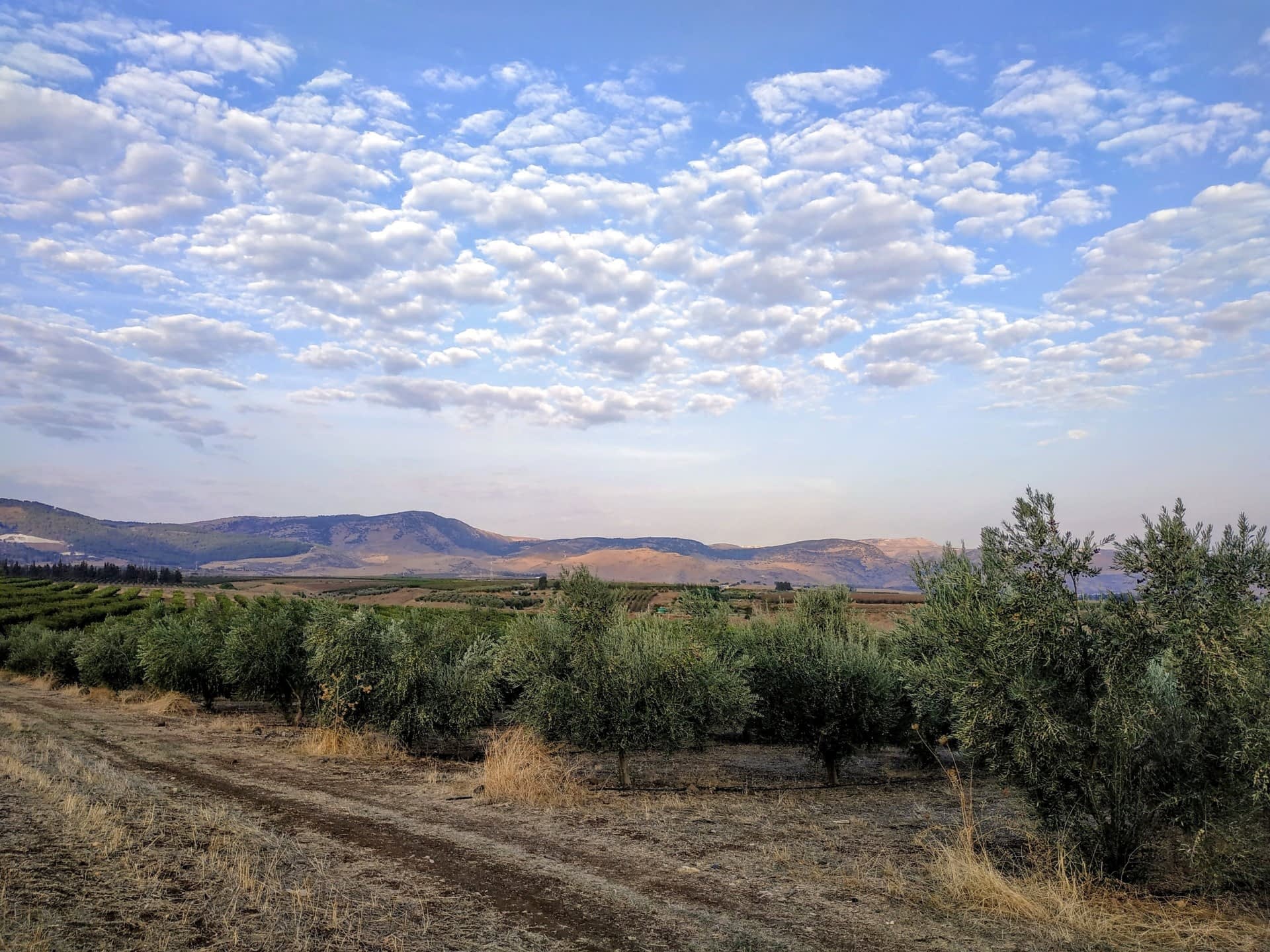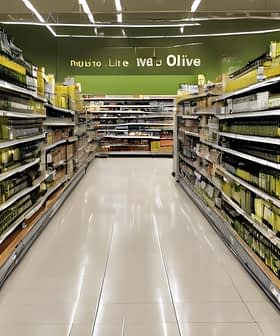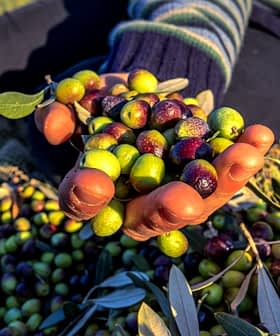Producers in Israel Reap Benefits of Record Harvest
Despite rising production costs and persistent challenges from imports, Israeli olive oil producers anticipate a bumper harvest and improved market share.
 Lahav in organic, Fair Trade olive grove in Deir Hana
Lahav in organic, Fair Trade olive grove in Deir Hana Israeli olive growers are celebrating a gratifying olive harvest, with abundant fruits on the trees and satisfying levels of oil accumulation.
“The olive oil season in Israel is now at its peak,” Ehud Soriano, an international olive oil panelist and consultant for Sindyanna of Galilee, told Olive Oil Times.
We expect a record year for both olives and olive oil… So far (the harvest) is beyond our expectations for both quantity and quality.
“The yield is high, and we expect a record year for both olives and olive oil,” he added. “After two years of low yields, we expected this season to be much better. So far, it is beyond our expectations for both quantity and quality.”
Many local growers resorted to a late harvest to wait for the fruit to ripen, which came later than the previous year.
See Also:2022 Harvest Updates“Last season, we had an alternate bearing off-season, which means that we did not have many fruits on the branches,” Nimrod Azulay, co-owner in charge of production and sales at KeremZait, told Olive Oil Times.
“And then we had quite a cold winter, which gave the trees the amount of cold they need, plus we had quite a humid growing season,” the award-winning producer added.
“People have been harvesting later than their usual schedule,” he continued. “It is a long harvest season this year, and all olive growers I know and spoke with are quite satisfied with the results.”
“We went for a late harvest,” Azulay said. “We start harvesting in mid-October and have usually completed it and milled the olives by the end of the month. However, the season moved back three weeks this year, to say the least.”
While Israel is among the countries on the eastern end of the Mediterranean basin celebrating a fruitful harvest in 2022, relevant challenges remain for producers.
“Life in the Middle East is always demanding,” Hadas Lahav, co-founder and chief executive of Sindyanna of Galilee, told Olive Oil Times.
“The local olive growing community in Israel faces two urgent challenges,” she added. “The first is how to convert their groves to sustainable farming. The second is how to overcome the takeover of industry and building on their shrinking agricultural lands.”
She emphasized the relevance of installing advanced irrigation systems and using modern agronomic practices to foster sustainability among local growers.
“On the other hand, the olive oil sector is where economy and cultures integrate most successfully,” she said. “Arabs, Jews, Israelis and Palestinians all come together with the joy and tiredness of harvest days.”
Lahav added that the harvest’s multicultural environment makes Sindyanna unique. “Sindyanna uses the harvest to bring people together,” she said.
Among its activities, Sindyanna helps Arab farmers certify their olives as organic and Fair Trade. The company also helps them sell their olive oil in the local and international markets.
“Sindyanna also purchases organic olive oil from Palestinian farmers in the West Bank,” Lahav said. “We are proud of our modest contribution to strengthening the Palestinian economy and to creating the hope of normal life and cooperation between the Palestinians and Israelis.”
Still, olive oil producers in Israel have had to cope with rising energy costs and a greater need for irrigation, which also translates into higher costs.
“We have been thinking a lot about expanding our production area, but it is not an easy task,” Azulay said. “It is very expensive to grow trees, and water for agriculture is pricey as it is labor and fertilizer. These conditions make it difficult to be profitable.”
Due to the scarcity of water in Israel, which the World Resource Institute lists as the second most water-stressed country on Earth, irrigation is becoming increasingly necessary for olive farmers,
“With climate change, including the long drought southern Europe suffered last summer, there are no more doubts about the value of implementing and using irrigation systems in olive groves,” Soriano said.
To this end, Sindyanna is part of Artolio, an international project to assist olive growers in the Mediterranean basin’s rural areas.
“The fundamental step forward of the farmers participating in Artolio is to implement irrigation,” Soriano said. “Without it, the olive oil sector in our region, as well as in other areas around the Mediterranean Sea, does not have a bright future.”
As a result of rising costs for everything from irrigation to fuel, olive oil prices in Israel are increasing similarly to other parts of the world.

Olive groves in KeremZait.
“We had to increase prices 23 percent,” Azulay said. “It is inevitable as production costs rise, but it is also a difficult choice, as your product will not reach everyone.”
He added that raising prices also hurts the competitiveness of Israeli olive oil on the domestic market since imported olive oils are often far cheaper. “The consumers get used to low prices,” Azulay said.
Recently, one of the country’s largest food retailers said olive oil bottles sold for a short period at only 11.50 shekels (€3.50) quickly achieved 81 percent of the local market share.
Meanwhile, Israeli olive oil brands are often sold for two to three times as much, with some producers carefully calculating their ability to reduce profit margins to compete.
Educating consumers about olive oil quality also remains a challenge in Israel. Like everywhere else, supermarkets sell non-virgin olive oil for far lower prices than Israeli extra virgin olive oil producers can sell their products.
Still, things are changing. “There has been a big leap forward in recent years regarding agronomic practices and better awareness about olive oil quality,” Soriano said.
According to the International Olive Council, olive oil consumption in Israel has risen consistently in the last decade.
“The good news in this context is that olive oil consumption in Israel is growing and in a certain way that boosts questions about and awareness of olive oil quality,” Azulay concluded. “That is why the outlook remains good for extra virgin olive oil producers.”








